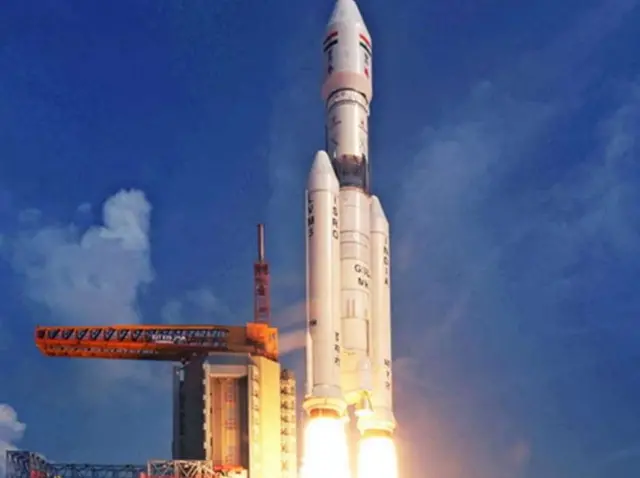India successfully launched 20 satellites on a single rocket in a display of its technological capabilities as the South Asian country touts its low-cost space programme to lure customers frustrated by a global backlog.
The satellites, including some from the United States and Canada, took off on Wednesday from the barrier island of Sriharikota along India’s south-eastern coast and all of them were injected into their orbits about half an hour later, AS Kiran Kumar, the chairman of Indian Space Research Organisation said in televised comments. Most of those machines will observe and measure the earth’s atmosphere, the space agency said.
Lauding scientists behind the launch in comments posted on his Twitter account, Prime Minister Narendra Modi said the nation’s space programme has “time and again shown the transformative potential of science and technology in people’s lives”.
The business of putting satellites into space is surging as phone companies, internet providers, airlines and even carmakers seek bandwidth for communications. Space is the new frontier for billionaires including Elon Musk and Jeff Bezos, who are privatising what was once a government-only industry by testing reusable rockets to help reduce costs.
India’s first mini space shuttle blasts off
The 20 satellites include an earth observation device to capture light invisible to the naked eye and one from an Indian university designed to provide services for amateur radio operators, ISRO said.
It is the biggest single launch by India, trailing Russia’s 33 in 2014 and Nasa’s 29 the year before. There were 208 satellites launched in 2014, almost double the amount the year before.
India sent its first rocket to space in 1963 and its first satellite in 1975. An unmanned mission to the moon that ended in 2009 showed water formation there may be occurring. The Mars probe beat China to the red planet after an almost yearlong voyage.
With eyes on space, India launches its own ‘mini-Hubble’
Last month, ISRO successfully launched a scale model of a reusable spacecraft in a development that may heat up the race to make access to space cheaper and easier. The country also injected a probe into Mars’ atmosphere in 2014 for just US$74 million, about 11 per cent of the cost of the US’s Maven probe.
(BLOOMBERG)
 简体中文
简体中文

